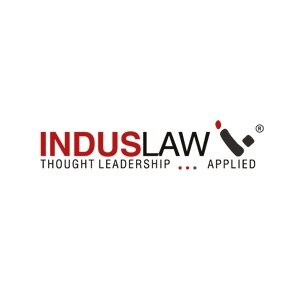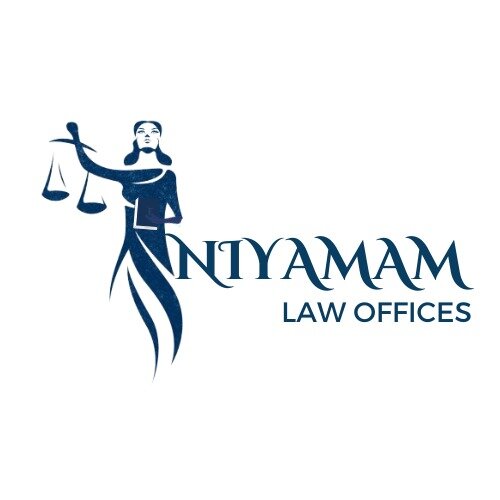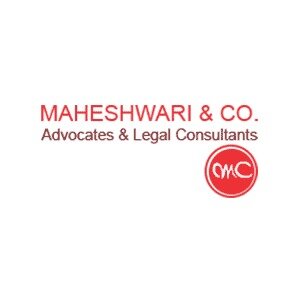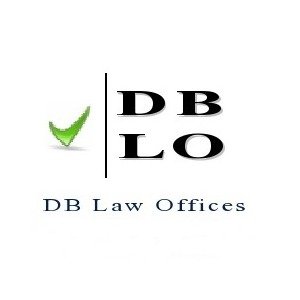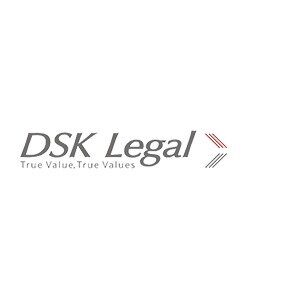Best Mortgage Lawyers in New Delhi
Share your needs with us, get contacted by law firms.
Free. Takes 2 min.
Free Guide to Hiring a Real Estate Lawyer
List of the best lawyers in New Delhi, India
About Mortgage Law in New Delhi, India
Mortgage law in New Delhi, India governs the legal aspects of borrowing money using real estate as collateral. A mortgage is essentially a loan agreement where the borrower provides a property as security until the loan is repaid. In case of default, the lender has the right to sell the property to recover the outstanding loan amount.
Why You May Need a Lawyer
There are several situations where seeking legal advice from a lawyer specializing in mortgage law in New Delhi, India can be beneficial. Some common scenarios include:
- Applying for a mortgage loan: A lawyer can help you understand the terms and conditions, review the loan agreement, and ensure your interests are protected.
- Property title issues: If there are any disputes regarding the ownership or validity of the property title, legal assistance can help resolve the matter.
- Foreclosure or default: If you are facing foreclosure or are unable to repay your mortgage, a lawyer can guide you through the legal process and explore potential solutions.
- Negotiating loan modifications: If you are struggling to make mortgage payments, a lawyer can negotiate with the lender for modified terms that are manageable for you.
- Legal documentation: A lawyer can assist in the preparation and review of mortgage-related documents, ensuring compliance with local laws and protecting your rights.
Local Laws Overview
In New Delhi, India, mortgage laws are primarily governed by the Transfer of Property Act, 1882, and the Registration Act, 1908. Some key aspects to be aware of include:
- Transfer of Property Act: This act outlines the rights and obligations of both the mortgagor (borrower) and mortgagee (lender), including the different types of mortgages and their legal implications.
- Registration Act: All mortgage transactions must be registered with the relevant sub-registrar office to be legally valid. Failure to do so may make the mortgage unenforceable.
- Lien on the property: Upon default, the mortgagee has the right to sell the property to recover the outstanding loan amount. This process is governed by the laws of foreclosure and auction.
- Stamp duty and registration fees: These charges are applicable when creating or modifying a mortgage and vary based on the loan amount and location of the property.
- State-specific regulations: It is important to be familiar with any additional rules or regulations specific to New Delhi or the state of Delhi, which may impact mortgage transactions.
Frequently Asked Questions
Q: Can I get a mortgage loan with a low credit score?
A: While a low credit score may make it challenging to secure a mortgage loan, it is not impossible. Lenders may have different eligibility criteria, and some financial institutions specialize in providing loans to individuals with low credit scores.
Q: What happens if I default on my mortgage loan?
A: If you default on your mortgage loan, the lender has the right to initiate foreclosure proceedings. This can lead to the sale of the property to recover the outstanding loan amount. It is crucial to seek legal advice to explore potential options and negotiate with the lender.
Q: What are the different types of mortgages available in New Delhi?
A: In New Delhi, common types of mortgages include registered mortgage, equitable mortgage, and mortgage by deposit of title deeds. Each has its own legal implications and requirements, so it is essential to understand them before entering into any mortgage agreement.
Q: Are there any tax benefits associated with mortgage loans in New Delhi?
A: Yes, mortgage loan repayment can provide certain tax benefits under the Income Tax Act, 1961. These benefits are subject to specific conditions, such as the end-use of the loan amount and the property's status (self-occupied or let-out).
Q: How long does it take to complete the mortgage registration process?
A: The mortgage registration process typically takes around two to four weeks in New Delhi. However, the exact timeline may vary depending on the workload of the sub-registrar office and any additional documentation required.
Additional Resources
For further information and assistance related to mortgage law in New Delhi, India, consider referring to the following resources:
- Registrar of Properties: This government body provides information and services related to property registration, including mortgage registrations.
- Delhi High Court: The official website of the Delhi High Court offers access to judgments, case laws, and legal resources that may be relevant to mortgage-related issues.
- Indian Banks' Association: This association represents banks and financial institutions in India and may provide insights into mortgage loan products and guidelines.
Next Steps
If you require legal assistance in mortgage-related matters in New Delhi, India, the next steps to consider are:
- Gather all relevant documents and information pertaining to your mortgage.
- Research and contact trusted lawyers who specialize in mortgage law in New Delhi.
- Schedule consultations with potential lawyers to discuss your case and evaluate their expertise and approach.
- Select a lawyer who aligns with your needs and proceed with engaging their services.
- Cooperate closely with your lawyer, providing all necessary information and documentation to strengthen your case.
- Follow your lawyer's guidance and advice throughout the legal process.
Lawzana helps you find the best lawyers and law firms in New Delhi through a curated and pre-screened list of qualified legal professionals. Our platform offers rankings and detailed profiles of attorneys and law firms, allowing you to compare based on practice areas, including Mortgage, experience, and client feedback.
Each profile includes a description of the firm's areas of practice, client reviews, team members and partners, year of establishment, spoken languages, office locations, contact information, social media presence, and any published articles or resources. Most firms on our platform speak English and are experienced in both local and international legal matters.
Get a quote from top-rated law firms in New Delhi, India — quickly, securely, and without unnecessary hassle.
Disclaimer:
The information provided on this page is for general informational purposes only and does not constitute legal advice. While we strive to ensure the accuracy and relevance of the content, legal information may change over time, and interpretations of the law can vary. You should always consult with a qualified legal professional for advice specific to your situation.
We disclaim all liability for actions taken or not taken based on the content of this page. If you believe any information is incorrect or outdated, please contact us, and we will review and update it where appropriate.





